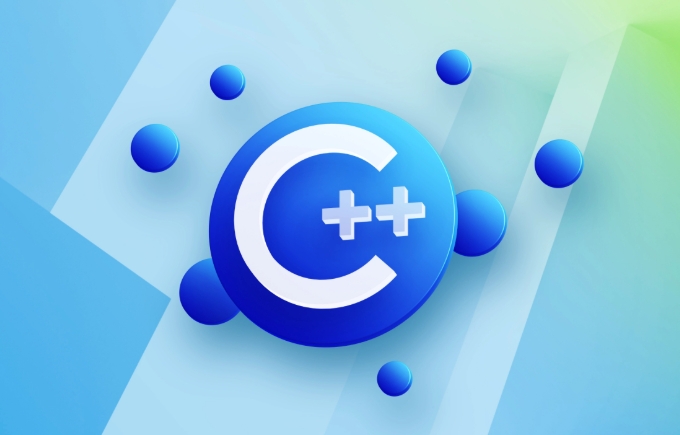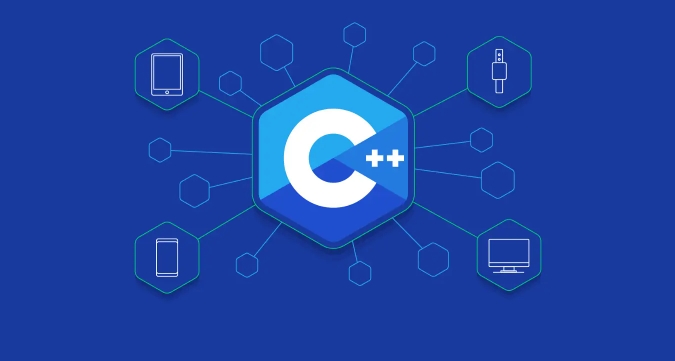C class template specialization
Jul 07, 2025 am 01:07 AMClass template specialization is a technique that provides completely different class template implementations for specific types. Its core uses include: 1. Performance optimization, such as bypassing redundant logic for types such as int, char*; 2. Type adaptation, and handling type logic with large differences; 3. Compatibility processing, such as distinguishing pointer and reference types. Fully specialization specifies all parameter types, while partial specialization specifies only some parameters or constraints, and is only applicable to class templates. Note when writing: specialized class bodies must be fully defined, avoid repeated definitions, and prioritize matching of the most specific version.

In C, class template specialization is a very practical feature, especially when you want to use different implementation logic for certain types. It is not a simple template specialization or fully specialized grammar exercise, but a technical point that can truly solve practical problems.

What is class template specialization?
Class template specialization refers to providing a completely different class template implementation for a specific type or set of specific types. This is a bit similar to function overloading, but it is for class templates.

For example, you have a general Container<t></t> class template:
template <typename T>
class Container {
public:
void print() { std::cout << "General version" << std::endl; }
}; If you want to use a special implementation when T is int , you can write a specialized version:

template <>
class Container<int> {
public:
void print() { std::cout << "Specialized for int" << std::endl; }
}; This way, Container<int> will call the specialized version, while other types continue to use the common version.
Common uses of specialization of class templates
- Performance optimization : For certain types, such as
intandchar*, redundant logic in general implementations can be bypassed. - Type adaptation : When different types of processing logics vary greatly, using specialization can prevent code bloat.
- Compatibility handling : For example, provide different behaviors for pointer types and reference types respectively.
For example, the following scenario is very typical:
template <typename T>
class Array {
// Ordinary array logic};
template <>
class Array<char*> {
// Do special processing for string array};This writing method allows you to flexibly deal with different types internally without changing the external interface.
The difference between specialization and specialization
Full Specialization is a specialization that specifies specific types for all template parameters. For example:
template <> class Container<int, double> { ... };Partial Specialization is to specify only some template parameters, or add some constraints. For example:
template <typename T> class Container<T*> { // For all pointer types};
Note: Partialization can only be used for class templates, not function templates. Function templates can only achieve similar effects through overloading.
Things to note when writing specialized classes
- Explicit specialization requires a complete definition : you must write out the entire class body, and you cannot specialize only some of the methods.
- Avoid duplicate definitions : If multiple files have the same specialized version written in them, errors may occur when linking. It is recommended to place specializations in the header file and add the
inlinekeyword (supported by C 17 or above). - Priority matching principle : The compiler will prioritize the most "specific" version. For example, full specialization is more preferred than partial specialization, and partial specialization is more preferred than general templates.
For example:
template <typename T>
class Wrapper; // General declaration template <>
class Wrapper<int> { /* specialized implementation*/ };
template <typename T>
class Wrapper<T*> { /* partial specialization implementation*/ }; When using Wrapper<int></int> , the partial specialized version is preferred rather than full specialization.
Basically that's it. Although class template specialization seems to be just a syntax detail, it is very critical in generic programming. Mastering its use will not only allow you to write more efficient code, but also help you understand the design ideas of many standard libraries and third-party libraries.
The above is the detailed content of C class template specialization. For more information, please follow other related articles on the PHP Chinese website!

Hot AI Tools

Undress AI Tool
Undress images for free

Undresser.AI Undress
AI-powered app for creating realistic nude photos

AI Clothes Remover
Online AI tool for removing clothes from photos.

Clothoff.io
AI clothes remover

Video Face Swap
Swap faces in any video effortlessly with our completely free AI face swap tool!

Hot Article

Hot Tools

Notepad++7.3.1
Easy-to-use and free code editor

SublimeText3 Chinese version
Chinese version, very easy to use

Zend Studio 13.0.1
Powerful PHP integrated development environment

Dreamweaver CS6
Visual web development tools

SublimeText3 Mac version
God-level code editing software (SublimeText3)
 What is the role of C++ templates in game development?
Jun 03, 2024 pm 07:51 PM
What is the role of C++ templates in game development?
Jun 03, 2024 pm 07:51 PM
Templates are a generic pattern in C++ for code reuse, efficiency improvement, and high customization. In game development, they are widely used: Containers: Create a container that can store various types of data. Algorithm: Create an algorithm that can be applied to various data types. Metaprogramming: Generate code at compile time to achieve runtime customization.
 C Deep Dive: Mastering Memory Management, Pointers, and Templates
Apr 07, 2025 am 12:11 AM
C Deep Dive: Mastering Memory Management, Pointers, and Templates
Apr 07, 2025 am 12:11 AM
C's memory management, pointers and templates are core features. 1. Memory management manually allocates and releases memory through new and deletes, and pay attention to the difference between heap and stack. 2. Pointers allow direct operation of memory addresses, and use them with caution. Smart pointers can simplify management. 3. Template implements generic programming, improves code reusability and flexibility, and needs to understand type derivation and specialization.
 What is the role of C++ templates in high-performance computing?
Jun 02, 2024 pm 12:44 PM
What is the role of C++ templates in high-performance computing?
Jun 02, 2024 pm 12:44 PM
The role of C++ templates in high-performance computing: Code reuse: Allows code to be written once, applicable to different data types, improving reusability. Minimize overhead: Reduce typing overhead and improve performance through code generation instead of runtime type checking. Portability: Expanded at compile time, making it easier to port code across different platforms.
 How to use templates in C?
Apr 28, 2025 pm 09:21 PM
How to use templates in C?
Apr 28, 2025 pm 09:21 PM
C templates are used to implement generic programming, allowing for the writing of general code. 1) Define template functions, such as max functions, which are suitable for any type. 2) Create template classes, such as general container classes. 3) Pay attention to template instantiation, compilation time, template specialization, debugging and error information. 4) Follow best practices, keep the code simple, and consider using constraint template parameters.
 Detailed explanation of C++ template metaprogramming
Aug 22, 2023 pm 02:25 PM
Detailed explanation of C++ template metaprogramming
Aug 22, 2023 pm 02:25 PM
C++ template metaprogramming is an advanced programming technology in C++. Through template metaprogramming, programmers can implement more complex logic processing and data operations during the compilation phase, thereby improving the performance and maintainability of the program. This article will introduce in detail the basic knowledge and application examples of C++ template metaprogramming. Basic concepts and principles of C++ template metaprogramming C++ template metaprogramming can implement some conventional flow control statements and algorithm operations during the compilation phase, which can make the program more efficient at runtime. The basic principle is: open
 How to extend the C++ template library?
Jun 01, 2024 pm 10:42 PM
How to extend the C++ template library?
Jun 01, 2024 pm 10:42 PM
Ways to extend the C++ Template Library (STL): Create new containers and algorithms: Create your own containers and algorithms, inherit from existing STL classes or use other design patterns. Extend with STL: Use the built-in mechanisms provided by STL, such as specializations and adapters, to extend its functionality.
 How to debug C++ template errors?
Jun 02, 2024 pm 12:21 PM
How to debug C++ template errors?
Jun 02, 2024 pm 12:21 PM
To debug C++ template errors you can follow these steps: Enable verbose error messages. Use the -ftemplate-backtrace-limit option to limit the backtrace depth. Create minimal examples that are repeatable. Checks whether the template arguments match the template declaration. Check that template specializations and partial specializations are correctly defined. Check dependencies for incorrect template declarations.
 The potential of C++ templates in artificial intelligence?
Jun 02, 2024 am 09:58 AM
The potential of C++ templates in artificial intelligence?
Jun 02, 2024 am 09:58 AM
C++ templates have the following potential in artificial intelligence: Improved runtime efficiency: Through templating algorithms, the compiler can generate assembly code optimized for specific data types. Reduce coding overhead: With templates, developers don’t need to rewrite code for different data types. Improve maintainability: Metaprogramming and type inference help create type-safe string constants, improving code readability and maintainability.






